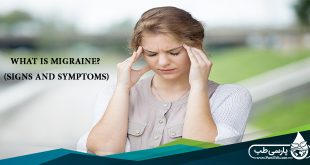Living with chronic pain should be enough of a burden for anybody. But pile on depression — one of the most common problems faced by people with chronic pain — and that burden gets even heavier.
Depression can magnify pain, and make it harder to cope. The good news is that chronic pain and depression aren’t inseparable. Effective treatments can relieve depression and make chronic pain more tolerable.
Chronic Pain and Depression: A Terrible Twosome
If you have chronic pain and depression, you’ve got plenty of company. That’s because chronic pain and depression are common problems that often overlap. Depression is one of the most common psychological issues facing people who suffer from chronic pain, and it often complicates the patient’s conditions and treatment. Consider these statistics:
•According to the American Pain Foundation, about 32 million people in the U.S. report pain lasting longer than one year.
•From one-quarter to more than half of patients who complain of pain to their physicians are depressed.
•On average, 65% of depressed people also complain of pain.
•People whose pain limits their independence are especially likely to get depressed.
Because depression in patients with chronic pain frequently goes undiagnosed, it often goes untreated. Pain symptoms and complaints take center stage on most doctors’ visits. The result is depression, along with sleep disturbances, loss of appetite, lack of energy, and decreased physical activity which may make pain much worse.
“Chronic pain and depression go hand in hand,” says Steven Feinberg, MD, adjunct associate clinical professor at Stanford University School of Medicine. “You almost have to assume a person with chronic pain is depressed and begin there.”
Chronic Pain and Depression: A Vicious Cycle
Pain provokes an emotional response in everyone. Anxiety, irritability, and agitation — all these are normal feelings when we’re hurting. Normally, as pain subsides, so does the stressful response.
But what if the pain doesn’t go away? Over time, the constantly activated stress response can cause multiple problems associated with depression. Those problems can include:
•chronic anxiety
•confused thinking
•fatigue
•irritability
•sleep disturbances
•weight gain or loss
Some of the overlap between depression and chronic pain can be explained by biology. Depression and chronic pain share some of the same neurotransmitters — the chemical messengers traveling between nerves. They also share some of the same nerve pathways.
The impact of chronic pain on a person’s life overall also contributes to depression.
“The real pain comes from the losses” caused by chronic pain, according to Feinberg. “Losing a job, losing respect as a functional person, loss of sexual relations, all these make people depressed.”
Once depression sets in, it magnifies the pain that is already there. “Depression adds a double whammy to chronic pain by reducing the ability to cope,” says Beverly E. Thorn, professor of psychology at the University of Alabama and author of the book Cognitive Therapy for Chronic Pain.
Research has compared people with chronic pain and depression to those who only suffer chronic pain. Those with chronic pain and depression:
•report more intense pain
•feel less control of their lives
•use more unhealthy coping strategies
Because chronic pain and depression are so intertwined, depression and chronic pain are often treated together. In fact, some treatments can improve both chronic pain and depression.
Treating Chronic Pain and Depression: A “Whole-Life” Approach
Chronic pain and depression can affect a person’s entire life. Consequently, an ideal treatment approach addresses all the areas of one’s life affected by chronic pain and depression.
Because of the connection between chronic pain and depression, it makes sense that their treatments overlap.
Antidepressants
The fact that chronic pain and depression involve the same nerves and neurotransmitters means that antidepressants can be used to improve both chronic pain and depression.
“People hate to hear, ‘it’s all in your head.’ But the reality is, the experience of pain is in your head,” says Feinberg. “Antidepressants work on the brain to reduce the perception of pain.”
Tricyclic antidepressants have abundant evidence of effectiveness. However, because of side effects their use is often limited. Some newer antidepressants are prescribed by doctors to treat certain painful chronic syndromes and seem to work well with fewer side effects.
Physical Activity
Many people with chronic pain avoid exercise. “They can’t differentiate chronic pain from the ‘good hurt’ of exercise,” says Feinberg. But, the less you do, the more out of shape you become. That means you have a higher risk of injury and worsened pain.
The key is to break this cycle. “We now know that gentle, regular physical activity is a crucial part of managing chronic pain,” says Thorn. Everyone with chronic pain can and should do some kind of exercise. Consult with a physician to design an exercise plan that’s safe and effective for you.
Exercise is also proven to help depression. “Physical activity releases the same kind of brain chemicals that antidepressant medications release — [it’s] a natural antidepressant,” says Thorn.
Mental and Spiritual Health
Chronic pain affects your ability to live, work, and play the way you’re used to. This can change how you see yourself — sometimes for the worse.
“When somebody begins to take on the identity of a ‘disabled chronic pain patient,’ there is a real concern that they have sunk into the pain and become a victim,” says Thorn.
Fighting this process is a critical aspect of treatment. “People with chronic pain end up sitting around,” which leads to feeling passive, says Feinberg. “The best thing is for people to get busy, take control.”
Working with a health care provider who refuses to see you as a helpless victim is part of the formula for success. The goal is to replace the victim identity with one of a “well person with pain,” according to Thorn.
Treating Chronic Pain and Depression: Cognitive Therapy for Chronic Pain
Is there such a thing as “mind over matter”? Can you “think” your way out of feeling pain?
It may be hard to believe, but research clearly shows that for ordinary people, certain kinds of mental training truly improve chronic pain.
One approach is cognitive therapy. In cognitive therapy, a person learns to notice the negative “automatic thoughts” that surround the experience of chronic pain. These thoughts are often distortions of reality. Cognitive therapy can teach a person how to change these thought patterns and improve the experience of pain.
“The whole idea is that your thoughts and emotions have a profound impact on how you cope” with chronic pain, says Thorn. “There’s very good evidence that cognitive therapy can reduce the overall experience of pain.”
Cognitive therapy is also a proven treatment for depression. According to Thorn, cognitive therapy “reduces symptoms of depression and anxiety” in chronic pain patients.
In one study Thorn conducted, at the end of a 10-week cognitive therapy program, “95% of patients felt their lives were improved, and 50% said they had less pain.” She also says, “Many participants also reduced their need for medications.”
Treating Chronic Pain and Depression: How to Get Started
The best way to approach managing chronic pain is to team up with a physician to create a treatment plan. When chronic pain and depression are combined, the need to work with a physician is even greater. Here’s how to get started.
•See your primary care physician and tell her you’re interested in gaining control over your chronic pain. As you develop a plan, keep in mind that the ideal pain management plan will be multidisciplinary. That means it will address all the areas of your life affected by pain. If your physician is not trained in pain management herself, ask her to refer you to a pain specialist.
•Empower yourself by tapping into available resources. Several reputable national organizations are devoted to helping people live full lives despite pain. See the list below for their web sites.
•Find a cognitive therapist near you with experience in the treatment of chronic pain. You can locate one by contacting the national pain organizations or cognitive therapists’ professional groups listed below.
 Parsi Teb Physical and Mental Health Journal
Parsi Teb Physical and Mental Health Journal 



